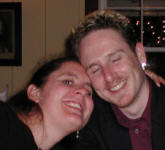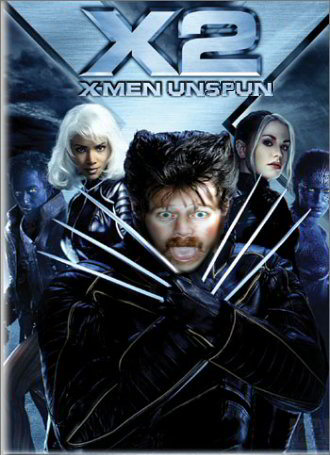Have you ever cooked a steak at home and wondered why it never ends up quite as succulent and tender as it does in a restaurant? A lot of this is down to the technique of resting the meat.
When you cook a piece of meat, the muscle fibres that are in closest contact with the heat contract. (There is a chemical process underlying this, involving the coagulation of proteins, but don’t worry about that.) As the fibres contract, all the juices that nestled between them get squeezed away from the source of the heat. It’s just like squeezing a sponge. When you cook the meat on both sides, all the juices flee from the edges of the meat into the centre. If you cut the meat wide open, the edges will look brown and cooked, but the centre will appear bloody and raw.
If you serve a steak (or a loin of pork, or a nice cut of lamb) straight from the pan like this, by the time the plate reaches the table, the meat will usually be lying in a small puddle of its own juices. If you’re hosting a dinner party, or trying to impress someone special, this can ruin the finely prepared effect you’re looking for.
Instead, take the meat out of the pan, place it on a warm (but not hot) plate, and leave it to stand for a while. Between 10 and 20 minutes is usually about right. As the meat slowly cools down (don’t stick it in the fridge for rapid cooling), the muscle fibres that were so tense before start to relax. It’s the reverse of the sponge effect. As the fibres relax, they reabsorb the juices from the centre of the meat, and draw it back towards the edges.
The result is that if you cut open the steak now, the whole of the inside will appear evenly pink. The residual heat from the edges will have cooked some more of the centre, and the edges will have reabsorbed some of the juices, thus altering their “well done” brown colour. Relaxed meat is more tender and succulent than tense meat, because the juices–and their flavour–have been reabsorbed rather than wasted.
Note that because the meat will have cooled down, it is worth giving it a little bit of heat before serving it: put it under a grill (broiler), or gently re-heat it in a warm (but not hot) pan for a minute or so. This will bring it back up to comfortable eating temperature without cooking it further.
No matter what the quality is of the meat you’re working with, letting it rest properly before serving makes a big difference to the experience of eating it. Even poor cuts are vastly improved by not overcooking them, and letting them relax for a while. Another advantage for the cook is that it takes some of the time pressure off cooking the meat. In the time that it is resting, you can be working on something else, like preparing a salad, cleaning up some of the mess you’ve just made in your kitchen, or (more realistically) enjoying a nice glass of wine.


 As of this afternoon, I’m the happy owner of a new Motorola v525 phone. I haven’t had much time to play with it yet, but the colour screen is nice, the built-in camera is nice, the polyphonic ringtones (with the option to install my own MP3 to play) are nice, the user interface (which I’d been warned was complicated) is nice, the battery life is very nice, and the overall size and feel of the phone in my hand is, well, nice.
As of this afternoon, I’m the happy owner of a new Motorola v525 phone. I haven’t had much time to play with it yet, but the colour screen is nice, the built-in camera is nice, the polyphonic ringtones (with the option to install my own MP3 to play) are nice, the user interface (which I’d been warned was complicated) is nice, the battery life is very nice, and the overall size and feel of the phone in my hand is, well, nice.